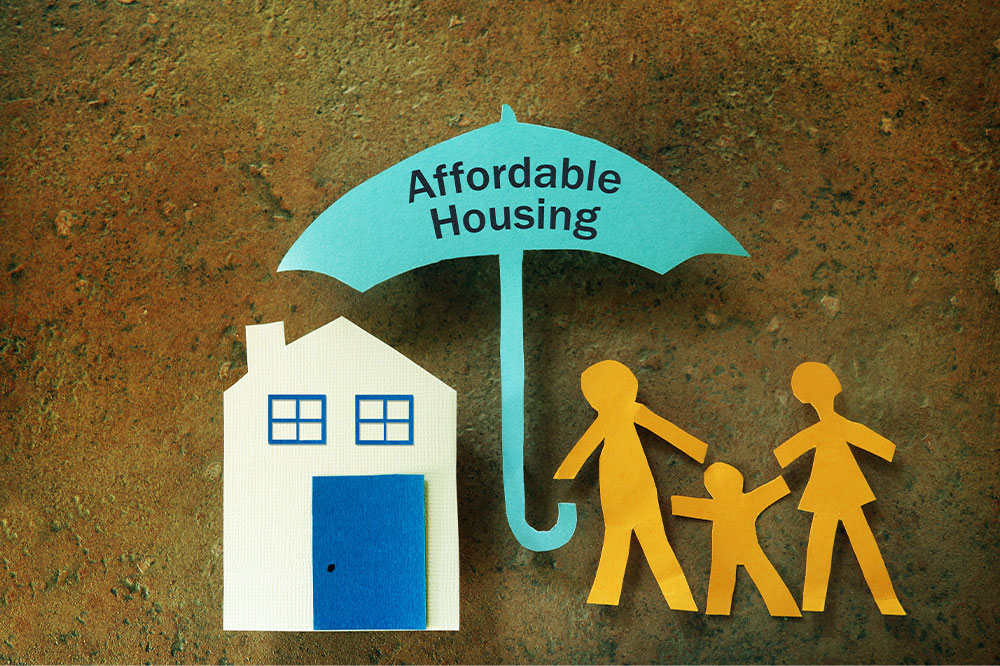
6 tips to find affordable housing – A money-saving guide
Finding affordable housing in the country can often be challenging. With growing property prices, rents and mortgages have also increased exponentially. It has made many people struggle to find homes at affordable prices. However, some creative ways exist for citizens and residents to ensure a roof over their heads. From applying for government sanctions to receiving financial aid for rent, here are six tips for finding affordable housing across the country.
Checking various neighborhoods/cities
Whether you are looking to rent or purchase property, less populated areas will always be cheaper to live in. To that extent, look to settle in less popular cities or around the outer towns of popular cities for the most affordable prices. You can save big by researching the rent and cost of living in the place you plan to move to before you relocate.
Knowing your budget
Putting a detailed budget in place can help you better understand what you can afford. It can also help you make better, more informed decisions regarding what you need in your new home and what you may need to cut back on. To properly set your budget, experts recommend dividing your post-tax income into separate expense brackets such as food, transportation, utilities, student loan payments, rent, and deposits to savings or retirement accounts. As a rule of thumb, expecting housing (rent or mortgage payments) to take up between 20% to 35% of your paycheck is reasonable. Avoiding options that exceed your budget is wiser, as this can make it difficult to meet other expenses. There are always exceptions to this rule. For example, people staying close to their workplace can skip transportation costs and afford more rent. Likewise, if your rent covers some or all of your utilities, you may save more in the long run. Make sure you thoroughly review your offers before reaching a decision.
Applying for Section 8
Families functioning on low income may qualify for low-income housing assistance plans such as Section 8 (now widely known as Housing Choice Voucher Program). The Department of Housing and Urban Development (HUD) offers this program to help low-income families, families with senior citizens, and people with disabilities. Eligibility for this program is decided by local public housing agencies (PHA) based on your annual gross income, citizenship or recent immigrant status, family size, and other local factors. These rules may differ depending on your state. Contact a PHA in your state first to apply for a Housing Choice Voucher. They will ask you to fill out a written application and collect information about your family size, income, and assets. This information is then checked with banks, other local agencies, and employers for verification purposes, and the agency determines the amount you will receive. The payments are adjusted to ensure you can afford a moderately-priced rental in your area that complies with the health and safety codes. Once you have found the rental, it must be inspected by the PHA before you can sign your lease.
Getting help with rent
Some government programs also help people with rent payments. Contact your state house financing agency or your local PHA to check for these programs. One can also reach out to their state human or social service agency for immediate assistance or to find out what other help may be available locally. If you don’t qualify for rental assistance through these agencies, they can connect you with community resources that can help.
Looking into public housing
The state owns many affordable housing options (apartments and single-family homes) intended for use by people of low-income groups, senior citizens, or people with disabilities. This program is also administered by the Department of Housing and Urban Development. However, long wait periods are expected since the demand for housing is greater than the number of houses available with the HUD.
Becoming a property caretaker
Suppose the above options do not suit your liking, and you have a certain amount of flexibility in your career and family life. In that case, you can also consider becoming a property caretaker for people with vacation homes or those who travel frequently. However, assignments as a property caretaker are often short-term and may require one to move around frequently. Caretakers often live rent-free but may be expected to help around the house with yard work, repairs, or taking care of livestock.
The HUD defines an affordable housing option as one that families can get for 30% or less of their income. It may vary from city to city; hence, it is wise to visit your local PHA to understand your eligibility for low-income housing.




